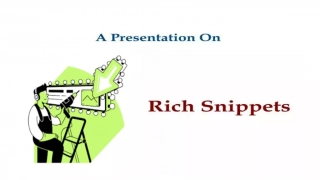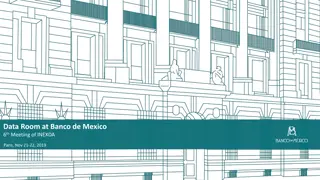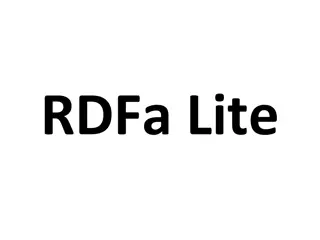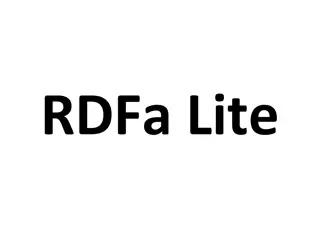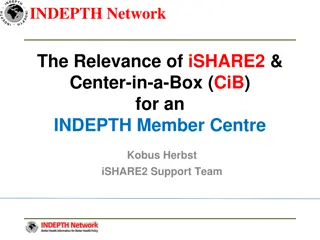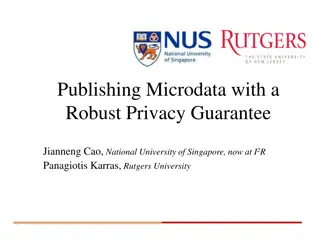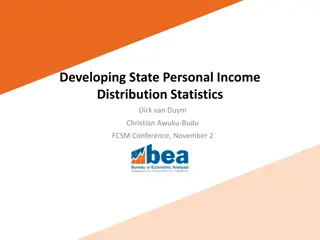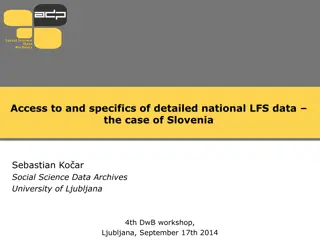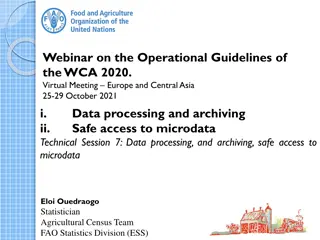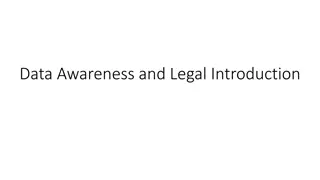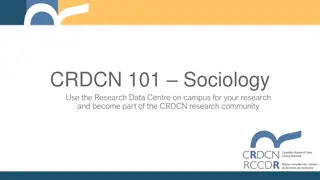Stand Out in Search: The Art of Rich Snippet Optimization
\nRich snippets are enhanced search results that provide additional information beyond traditional titles and meta descriptions. Achieved through structured data markup, such as JSON-LD or Microdata, rich snippets offer a more detailed preview of webpage content in search engine results. Examples in
1 views • 8 slides
Data Room at Banco de Mexico: Enhancing Data Sharing for Economic Research
Banco de Mexico has been gathering granular data on financial transactions since the mid-1990s to monitor compliance, risks, and economic interactions. The creation of a Data Room allows for efficient and secure data sharing, contributing to economic research and analysis. The Economic Microdata Lab
3 views • 12 slides
Understanding RDFa Lite: A Simplified Approach to Structured Data Markup
RDFa 1.1 Lite is a subset of RDFa 1.1 that simplifies structured data markup by employing attributes like vocab, typeof, property, resource, and prefix. It works seamlessly with schema.org terms, enabling easy integration of structured data into web content. The comparison of RDFa Lite with Microdat
2 views • 7 slides
Understanding RDFa Lite: A Simplified Approach to Structured Data
RDFa 1.1 Lite is a subset of RDFa 1.1 with five simple attributes: vocab, typeof, property, resource, and prefix. It is fully compatible with RDFa 1.1 and works well with schema.org terms. This structured data format provides a straightforward method for adding context to web content, allowing for i
2 views • 7 slides
Enhancing Data Management in INDEPTH Network with iSHARE2 & CiB
INDEPTH Network emphasizes the importance of iSHARE2 & CiB to enhance data sharing and management among member centers. iSHARE2 aims to streamline data provision in a standardized manner, while CiB provides a comprehensive data management solution. The objectives of iSHARE2 include facilitating data
0 views • 17 slides
Ensuring Privacy in Microdata Publishing
This research explores various privacy protection techniques for publishing microdata, focusing on k-anonymity, l-diversity, t-closeness, and EMD models. It discusses the challenges and limitations of each method, highlighting the need for robust privacy guarantees in the handling of sensitive infor
0 views • 20 slides
Developing State Personal Income Distribution Statistics
This project aims to create a distributional account for State Personal Income, allowing for the analysis of inequality by state and over time. Using various data sources such as BEA aggregates and IRS statistics, the distributional model provides insights into state-level income inequality. Census
0 views • 17 slides
Detailed National LFS Data Access in Slovenia
Explore the process of accessing detailed national LFS microdata in Slovenia, differences between EU-LFS and Slovenian LFS (ADS survey), availability for different user types, preparation steps, distribution methods, and future plans discussed at the 4th DwB Workshop in Ljubljana, 2014.
0 views • 14 slides
Best Practices in Data Processing and Archiving for Agricultural Census
Explore the operational guidelines from the WCA 2020 Virtual Meeting focusing on data processing, archiving, and safe access to microdata. Learn about hardware and software requirements, data processing activities, good practices for data integrity, and ensuring safe access to microdata for agricult
0 views • 30 slides
Understanding Data Awareness and Legal Considerations
This module delves into various types of data, the sensitivity of different data types, data access, legal aspects, and data classification. Explore aggregate data, microdata, methods of data collection, identifiable, pseudonymised, and anonymised data. Learn to differentiate between individual heal
0 views • 13 slides
Exploring CRDCN: Accessing Unique Data for Research
The Canadian Research Data Centre Network (CRDCN) offers researchers access to Statistics Canada microdata and a variety of other datasets through Research Data Centres (RDCs) across 33 campuses. Data accessed via the RDC is secure and protected, allowing for in-depth analysis while ensuring confide
0 views • 7 slides
